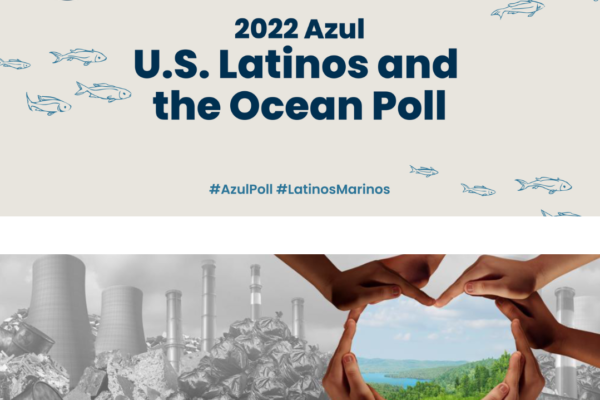As zoos, aquariums, and museums increasingly use market research from The Ocean Project and other sources to become more strategic and effective communicators and educators for conservation action with their audiences, it might prove helpful to see how the environmental movement is showing signs of shifting course in their messaging.Although there are always exceptions, the traditional “end-is-nigh” messaging that many environmentally-minded individuals and organizations have used has been largely ineffective in galvanizing society to action; what this type of messaging has done to a large extent is succeed in stereotyping environmental activists as preachy and judgmental. Increasingly, however, environmentalists are more broadly embracing a basic tenet of successful communication: framing. Shifting away from indiscriminate dissemination of information, framing strategically communicates an issue by putting it into a context which is familiar and valid to the audience (for more information on framing, see the Framing Public Issues Toolkit by the Frameworks Institute).
How can this best be done?
Change the minds and actions will follow?
Common Cause, a report recently released by WWF-UK, proposes that cultural values provide motivation for action, and argues that a shift from extrinsic to intrinsic motivation is needed in Western culture to foster a sustainable society. Specifically, it advances that communication campaigns can support this change by publically challenging common self-centered and consumerist sources of motivation.Take action and the minds will follow? Chris Rose, operator of campaignstrategy.org, thinks so. In his response to the report, Common Cause, Rose argues that rather than trying to change what people value, communicators should activate frames that their audience already cares about. For example, conservatives may not support renewable energy to fight global warming, but might be willing to support it to reduce reliance on foreign oil. Rose goes on to illustrate his point with real world examples where environmental action is taken for non-conservation-related reasons, but nevertheless results in a more environmentally conscious populous.
Common Cause, a report recently released by WWF-UK, proposes that cultural values provide motivation for action, and argues that a shift from extrinsic to intrinsic motivation is needed in Western culture to foster a sustainable society. Specifically, it advances that communication campaigns can support this change by publically challenging common self-centered and consumerist sources of motivation.Take action and the minds will follow? Chris Rose, operator of campaignstrategy.org, thinks so. In his response to the report, Common Cause, Rose argues that rather than trying to change what people value, communicators should activate frames that their audience already cares about. For example, conservatives may not support renewable energy to fight global warming, but might be willing to support it to reduce reliance on foreign oil. Rose goes on to illustrate his point with real world examples where environmental action is taken for non-conservation-related reasons, but nevertheless results in a more environmentally conscious populous.
Perhaps these two are not opposed
Rose’s point that problems must be accepted as a “social fact” before they can be solved (e.g. equality and civil rights, or health risks and smoking) is a corollary of Common Cause‘s claim that extrinsically motivated changes do not have cultural staying power. Both strategies depend on one another to foster a sustainable society for the future. History has shown that decisive action (e.g. activism during the civil rights movement) can vitalize a previously apathetic public; likewise, it has also shown that long-term value based campaigning — such as changing smoking’s public image from “cool” to “outcast” — can be powerful.Using both strategies in tandem seems to be the wisest move for a sustainable future.



